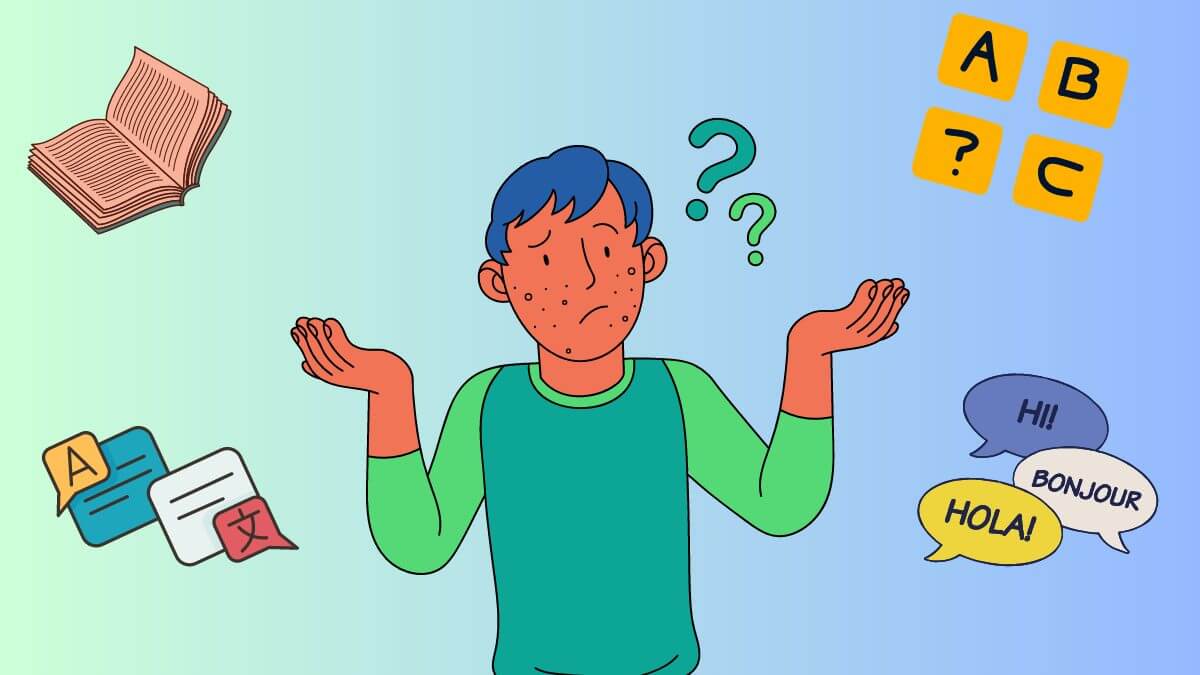False friends in Spanish are words that sound or are written similarly in another language, but have a different meaning than one might expect.
Often, these “false friends” can cause misunderstandings and confusion when learning a new language, especially when used in an inappropriate context. False friends can have different origins, but one of the languages that has had the most influence on Spanish is Latin, since Spanish is a Romance language derived from Latin, just like Italian, French, Portuguese, and Romanian.
Italian false friends

Italian, for instance, has a lot of words that look like Spanish, but they have a different meaning. Here are some examples:
“Attualmente“
It means “currently” in Italian, but it can be confusing because in Spanish “actual” means “of the present” and not “right now”
“Deludere”
In Italian, it means “to disappoint”, while in Spanish, “deludir” does not exist and “decepcionar” or “defraudar” are used instead.
“Raffinato“
It is translated into Spanish as “refinado”, but its meaning in Italian is more limited and mainly refers to refined food or drink.
“Fattoria“
In Italian, “fattoria” refers to a farm, while in Spanish “fábrica” is the correct term for a manufacturing or production plant. Therefore, a Spanish speaker could confuse these terms and ask for a “cheese factory” instead of a “cheese farm” when visiting Italy.
“Camera“
In Italian, “camera” refers to a room, while in Spanish “cámara” is used to refer to a camera or video camera. Therefore, a Spanish speaker could confuse these terms and ask for “a camera with ocean views” instead of “a room with ocean views”.

“Delitto“
“In Italian, “delitto” means “crime”, while in Spanish “delito” is a legal term used to refer to an illegal act. Therefore, if a Spanish speaker uses “delito” in Italian, it may lead to confusion about the severity of the criminal act.”
English false friends

English also has a lot of false friends, some of which can lead to misunderstandings or confusion in specific contexts. Some examples are:
“Recordar“
In Spanish, “recordar” means “to have something present in memory“, while in English “record” is used to refer to something that is recorded on a storage medium such as a disc or tape.
“Compromiso“
In Spanish, “compromiso” refers to an obligation or an agreement, while in English “compromise” means reaching a mutual agreement after a negotiation. Therefore, if a Spanish speaker tries to use “compromiso” in English to refer to a negotiation, it could cause confusion.

“Carpet“
In English, “carpet” refers to a rug, while in Spanish “carpeta” is used to refer to a folder for files or documents.
“Actually“
It means “actually” in English, but in Spanish “actualmente” means “currently” or “at present”.
“Embarazada“
It means “pregnant” in Spanish, but “embarrassed” in English means “ashamed” or “humiliated”.
“Sensible“
In English, “sensible” means “reasonable” or “rational”, but in Spanish “sensible” means “sensitive to touch or hearing”.
“Library“
In English, “biblioteca” refers to a “library”, but in Spanish “librería” refers to a store that sells books.

French false friends
French also has several false friends with Spanish, as both languages share a long history and many similar words. Some examples are:

“Actuellement“
It’s translated into Spanish as “actualmente”, but in French it means “right now”.
“Assister“
In French, it means “to attend” in Spanish, but in French, it also means “to observe”.
“Succès“
In French, it means “success” in Spanish, but in French, it is also used to refer to a successful or popular show.
Falsos amigos alemanes

“Chef“
In German, it means “success” in Spanish, but in German, it is also used to refer to a successful or popular show.
“Kamerad”
In German, “Kamerad” means “comrade” or “companion“, while in Spanish, “cámara” is used to refer to a camera for taking photos or video. Therefore, a Spanish speaker could confuse these terms and use “cámara” instead of “camarada”.

False friends in Spanish are words that sound or are written similarly in another language, but they have a different meaning than what one might expect. Although false friends can be a source of confusion, they can also be a useful tool when learning a new language, and they can provide interesting information about the history and evolution of languages.




